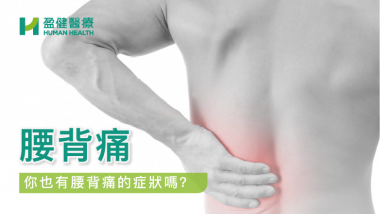Education Corner

Show Your Love This Mother’s Day with Care and Health
Many people want to show love to their mothers on this special day.
Aside from gifts, flowers, or taking her to a nice meal, why not show you care by paying attention to her health?
Health is priceless—and safeguarding your mother’s wellbeing is the most meaningful gift you can give.
In addition to common concerns like high blood sugar, high cholesterol, and high blood pressure, here’s a list of other important health checks to help you turn love into action this Mother’s Day.
Should She Get a Mammogram or Breast Ultrasound Every Year?
Breast cancer is the leading cancer among women in Hong Kong, and its incidence is rising with younger cases being reported.
Self-examination may sometimes detect lumps, but by the time symptoms appear, the cancer might have already reached Stage 2.
Women aged 40 and above should have a clinical breast exam and ultrasound scan every year, plus a mammogram every two years.
A breast ultrasound distinguishes cysts from solid tumors, while a mammogram can detect microcalcifications that may indicate early cancer.
Both tests complement each other for more accurate screening.
What Is a DEXA Bone Density Test? Does “Anti-resorptive Injection” Help Maintain Bone Health?
Women begin losing bone mass around age 35, and this accelerates after menopause as estrogen levels drop sharply.
Osteoporosis produces no obvious symptoms until fractures occur—commonly in the hip, spine, or forearm. Even minor impacts may result in fractures, and spinal collapse can cause back pain, stooping, or height loss.
Some handheld bone scanners use ultrasound to measure heel bone density, but these are for screening only, not diagnosis.
The standard method is the DEXA (Dual-Energy X-ray Absorptiometry) scan.
Besides calcium, vitamin D, sunlight exposure, and regular exercise, research has identified a naturally occurring protein called osteoprotegerin (OPG) that protects bone mass.
The “anti-resorptive injection” mimics OPG to inhibit bone-resorbing cells, helping slow down bone loss and manage osteoporosis.
Should Elderly Mothers Still Get Cervical Screening and the HPV Vaccine?
Cervical cancer, caused by human papillomavirus (HPV), often has no symptoms in its early stages.
By the time vaginal bleeding or abnormal discharge occurs, the disease may already be advanced.
Fortunately, cervical cancer is preventable.
Even women who are sexually active can gain protection from the HPV vaccine, and regular Pap smears are essential for detecting precancerous cell changes early.
Why Is a Colonoscopy Important?
Colorectal cancer has become one of Hong Kong’s fastest-rising cancers and is now the second leading cause of cancer death.
While the risk is higher in men, many women are also affected.
Polyps in the colon typically take 10 years or more to develop into cancer, and early-stage cases often have no symptoms.
The U.S. health authorities and Hong Kong’s Department of Health recommend regular colorectal cancer screening to detect and remove polyps early.
If you or your family members are aged 50–75 (born between 1944 and 1970), you may be eligible for subsidized testing under the Colorectal Cancer Screening Programme.
Should Moms Get Vaccinated Against Shingles?
Shingles (Herpes Zoster) is caused by the varicella-zoster virus—the same virus responsible for chickenpox.
After recovery from chickenpox, the virus remains dormant in nerve tissues and can reactivate as immunity declines with age.
This causes painful rashes or blisters, usually on one side of the body, particularly on the back or waist.
Shingles pain can last for up to four weeks and severely affect daily life.
If the infection reaches the eyes or ears, it may cause blindness or hearing loss.
Those aged over 50 or who have previously had chickenpox have a higher risk—so vaccinating early can prevent suffering later.
Can Hyaluronic Acid (HA) Injections Relieve Joint Pain?
The knee joint bears much of the body’s weight and is prone to wear and tear over time.
As cartilage gradually deteriorates with age, symptoms like pain climbing stairs, stiffness, or soreness during weather changes may occur—signs of osteoarthritis.
Research shows that hyaluronic acid injections can reduce joint friction, preserve cartilage, and slow degeneration.
The procedure is simple: the doctor disinfects the joint area, inserts a fine needle into the space, and injects the hyaluronic acid—usually completed in 15 seconds. Patients can stand and walk immediately afterward.
However, HA treatment is temporary—each injection lasts 3 to 6 months and is mainly effective for mild to moderate osteoarthritis.
For severe degeneration, joint replacement surgery may be recommended.
This information is for general health awareness and should not replace your doctor’s professional advice.
If you have questions, please consult your family physician.
No responsibility will be assumed for any omissions or errors in the content.






